Henna Night
I’ve lived in Turkey for a long time and been lucky enough to participate in lots of traditional activities. One of my favourite things to do is to join in on a kına gecesi, or henna night. This is the night Turkish women get together before the wedding to celebrate and commemorate the upcoming nuptials. Kına, or henna, the thick red ochre paste used in many cultures to decorate hands and feet or to colour hair, represents sacrifice in Turkey.
During Kurban Bayramı, when an animal is sacrificed as a religious offering to Allah, the cow or sheep is marked with henna. Young men preparing to go into the army are hennaed, sometimes on the ends of all their fingers but usually just the little one. It’s a symbol of their future, as potential sacrifices who might die for their country.
When a woman marries, a circle of henna is also placed on her hands on the henna night. The tradition and meaning of henna is both cultural and religious, with the traditions changing from place to place. In some areas, the tradition of the kına gecesi remains strong, but in the more modern cities it’s dying out, for both practical reasons and a newer belief that these are peasant ways and should be abandoned.
In smaller towns and villages, the henna nights often take place outdoors, so when you’re in Turkey for a holiday, there’s a good chance you’ll come across one. Before you step onto the dance floor though, here’s some useful things to know. The henna night isn’t just a party for the bride. It’s also a chance for mothers looking to match up their sons to check out the form of the unmarried girls. The way they do this is to watch the girls as they dance, so be careful how you move! I didn’t know this when I went to my first henna night.
My experience of a henna night
“Fatmagül immediately dragged me to the centre of the seated women and made me dance with her. Others flocked to the small dance area too, until we were surrounded by several hundred women. The male spectators on the walls and balconies were still there, ogling us, and I could hear the word ‘yabancı’ being whispered from woman to woman back through the rows (of seated women).
Yabancı not only means foreigner from another country but also not local to a particular village, and from the way they all looked at me, unblinkingly and not smiling, it was clear I was a foreigner to them in both senses of the word. It seemed like every eye was on me and I was finding it harder and harder to stay relaxed. Fatmagül danced on, laughing at my general discomfort until I finally gave in and just went with the mood. From the nods and smiles of my audience, it seemed the right thing to do.”
When the music stopped Fatmagül had to fend off lots of inquiries about me. Luckily I had just enough Turkish to tell all my new admirers I was already married. Their disappointment was quickly forgotten because it was time to take our seats for the entertainment. The entertainment is a bit like pantomime really. Young men sneak into the dance area dressed as virginal maidens before being chased out, and then a woman dressed as a man enters stage right. Her role is to act the letch, ably accompanied by an older woman dressed in traditional baggy trousers and droopy cardigan, sometimes topped off with a lurex boob tube or scarf to show she is playing the vamp.
Each time the ‘man’ makes lecherous advances on the woman she repels him while the watching women loudly jeer and heckle. Some of their comments are surprisingly fruity, or so I’m told.
After the laughter come the tears. Henna is brought out and applied to the hands of the bride. It signifies that she goes as a sacrifice from her father to her husband. While the sentiments might seem old-fashioned and out of step with modern life, it is the moment a young girl becomes a woman, leaving her parents’ home forever. The bride is expected to cry at the thought of the separation, and even the most sophisticated of girls sheds a tear or two.”
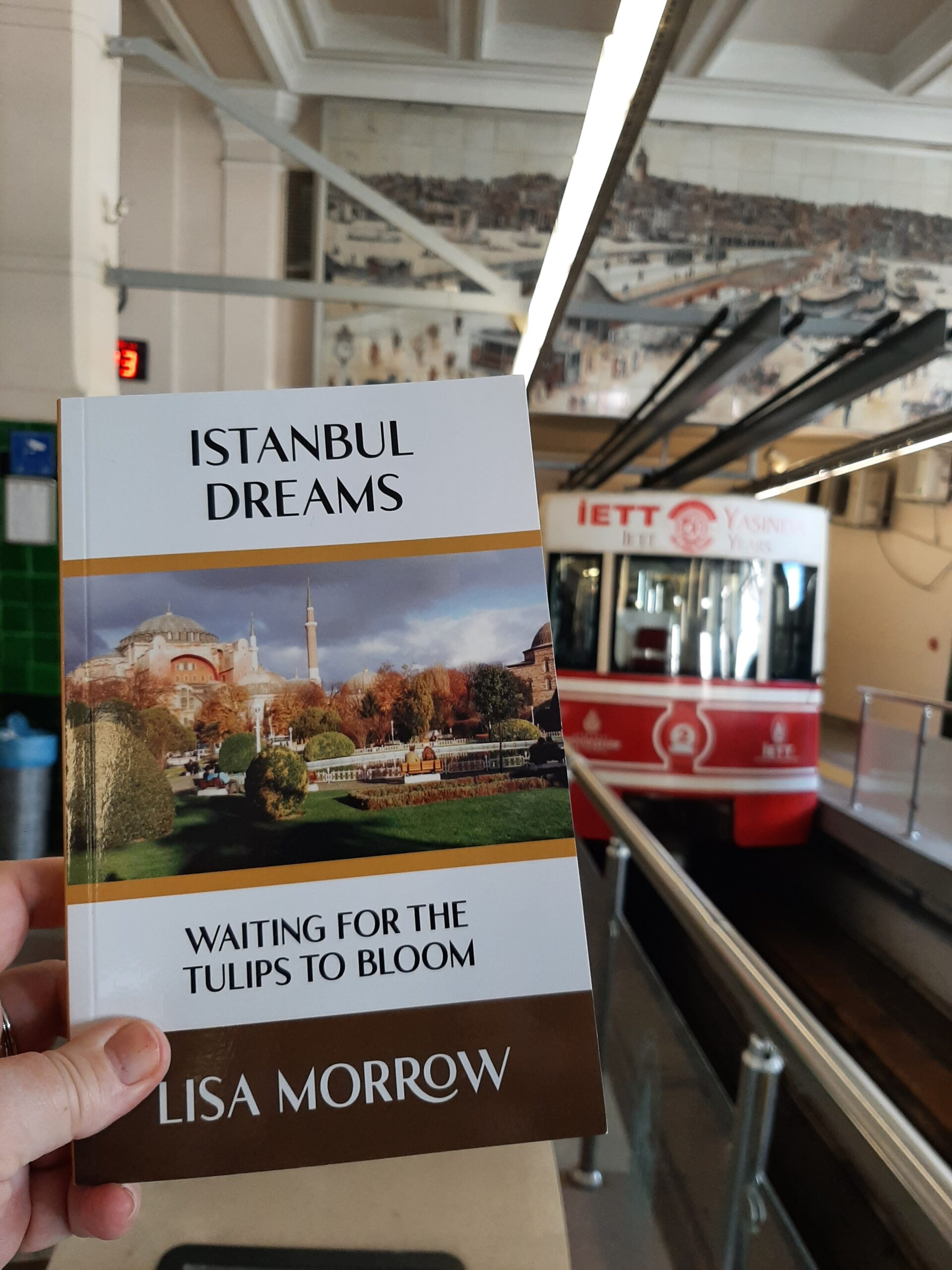
You can read more about my experiences and life in Turkey in my memoir Istanbul Dreams: Waiting for the Tulips to Bloom. Although it can be nerve-wracking to be the centre of so much attention, if you’re invited to a henna night, I urge you to go. You might feel out of place at first but if you let go of your fears and join in the fun you’ll have a night to remember. It’s really similar to our hens’ parties without the drinking, strippers or flirting with the opposite sex, because it’s the night when the bride-to-be, all her female relatives and more girlfriends than you can count, get together to dance the night away.
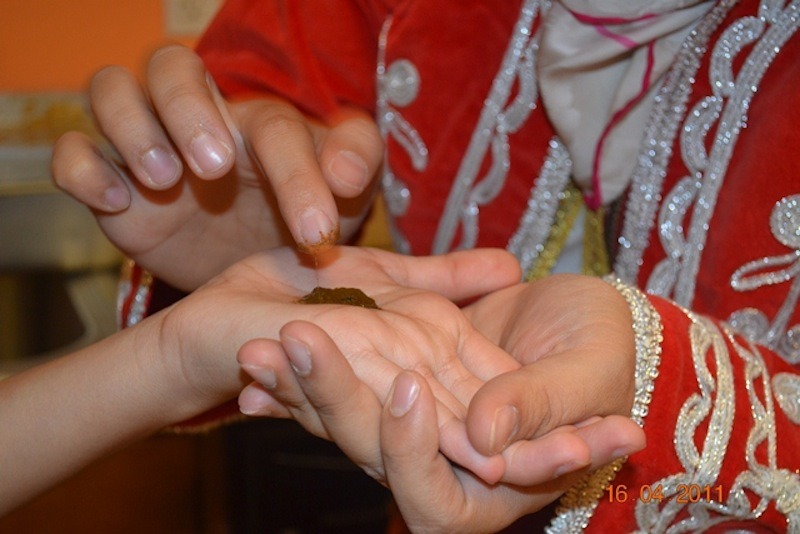
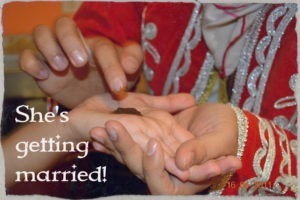
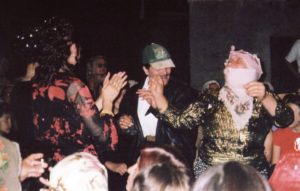
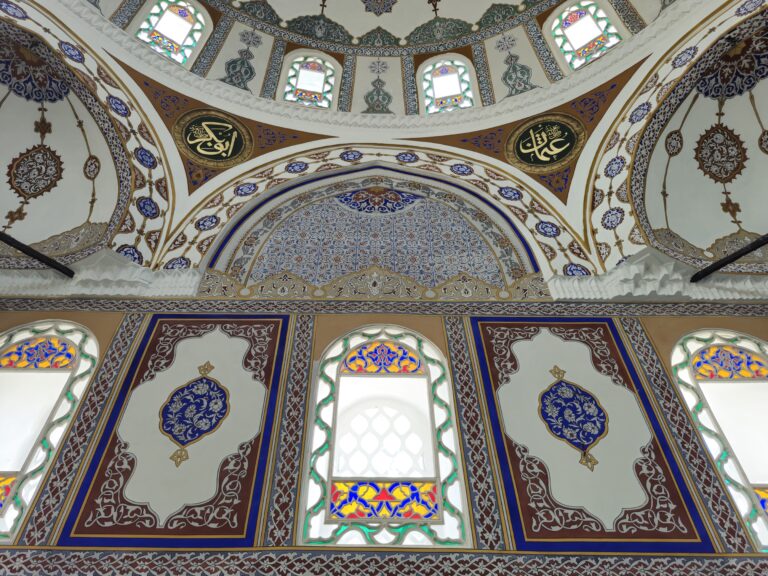
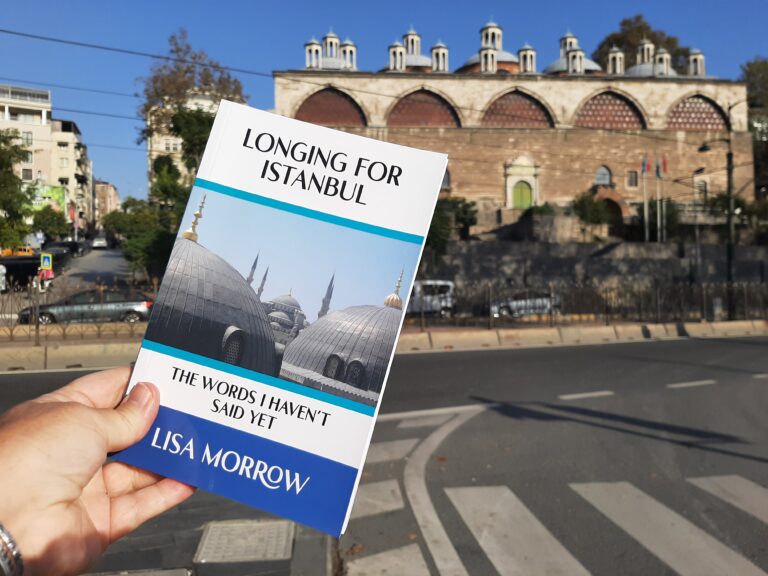
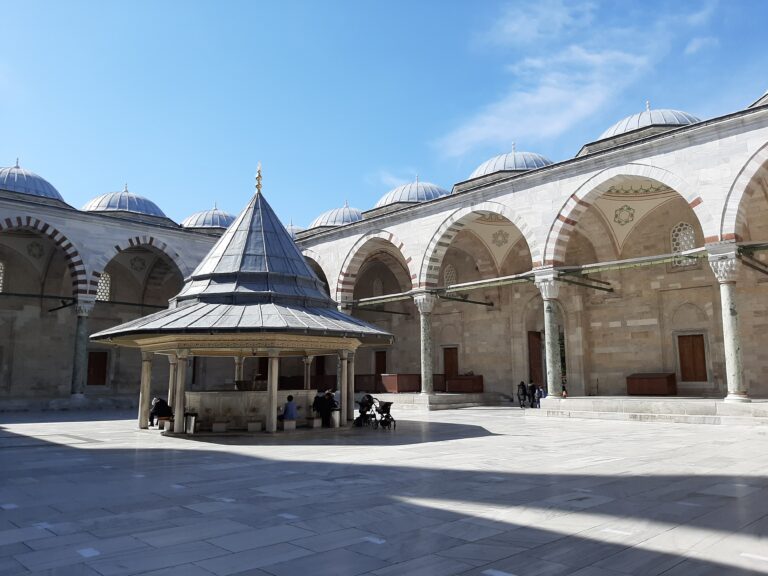

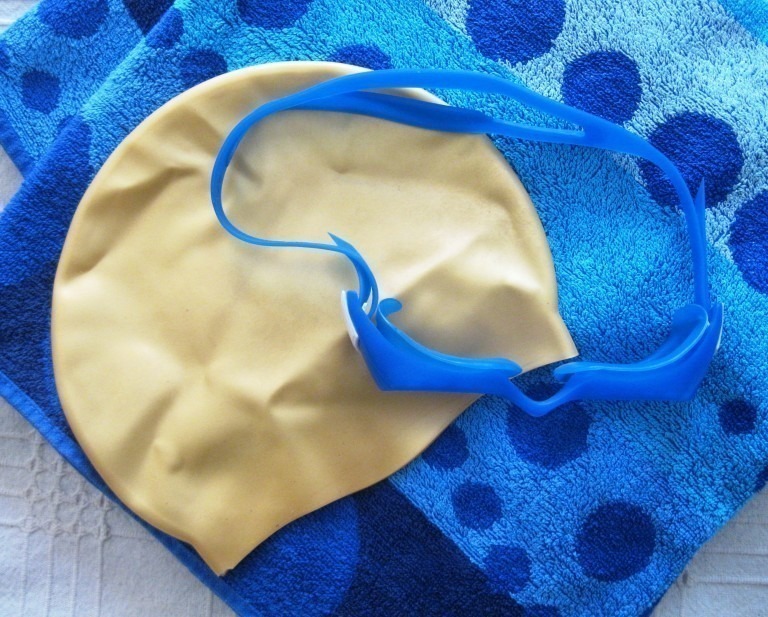
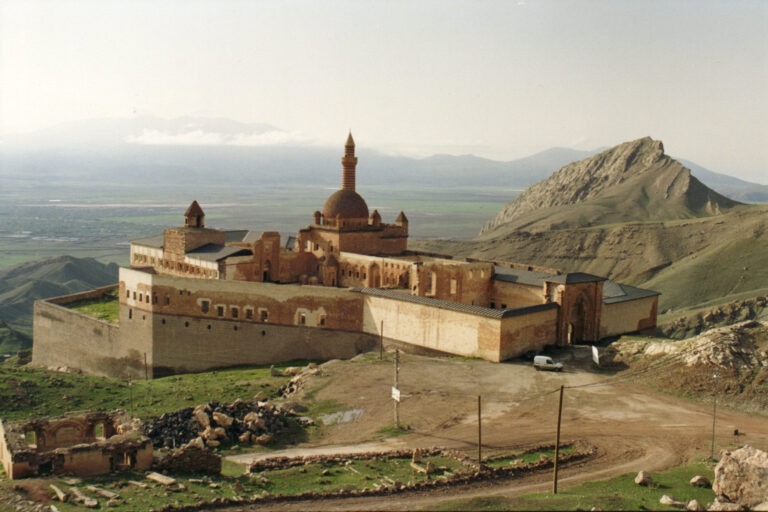
I remember being invited to a Kina Gecesi long before we actually lived here. I was really excited when my friends told me my hands would be painted and I had visions of going back to work in the UK with beautifully painted hands covered in intricate patterns. Er no.
We went to a house away from the village. In the yard we mingled with chickens who were fighting for scraps from the bread mountain that has appeared alongside enormous cooking pots of corba and various other dishes of yoghurt etc. We sat on the hard ground with spoons at the ready and ate from the communal pots and dishes. An official looking woman led prayers and read from the Koran. Somehow we demolished most of the bread even though it was on never ending top up.
When it came to the henna I sat excitedly waiting my turn. Not exactly as I had imagined. My hands were covered with this thick green strange smelling paste and told not to wash it off until the next day. I also had a coin taped to the palm of my hand. There were lots of women but I don’t recall any dancing or men being there.
We then left and made our way home. The next morning was an even bigger disappointment. My hands, fingers and even my nails were stained a dark reddish brown that looked absolutely awful. ‘How long does it last?’ I asked my friend. She told me about three weeks before it had totally gone.
I remember returning to the Magistrates’ Court where I worked and attending meetings with dirty brown stained hands and fingers in a shade that a 500 a day smoker would struggle to achieve. Lesson learnt the hard way!
I can just imagine what your colleagues thought! Still, you certainly had a unique experience and a taste of real Turkish life. Given how long you’ve lived in Turkey now it obviously suits you.
I also look forward to visiting turkey in the future insha Allah
Despite the decades here, I have never been to a kına gece, but then I’ve never been to a hen night in the UK either , there must be some connection with the words – do you know what it is?
That’s a good question. I don’t actually know if there is a connection, but I’ll put it on my list of things to check out.